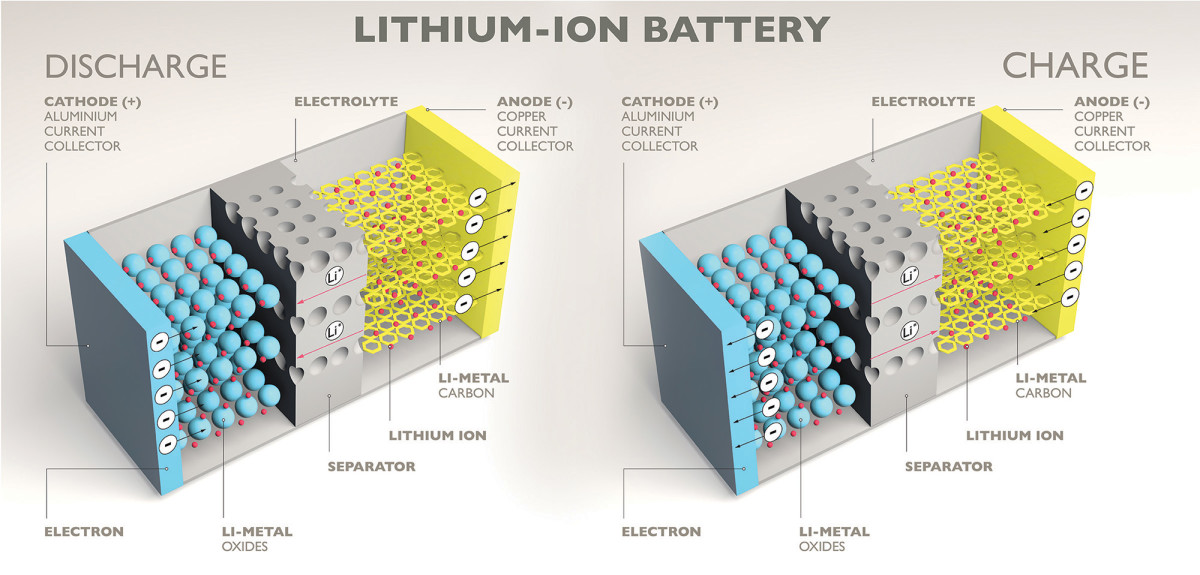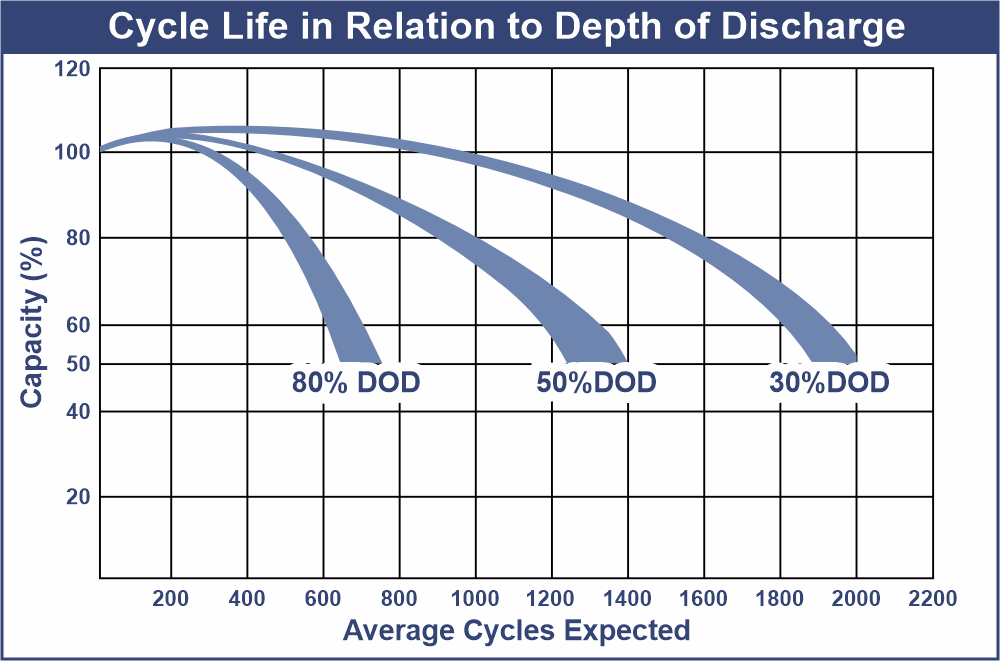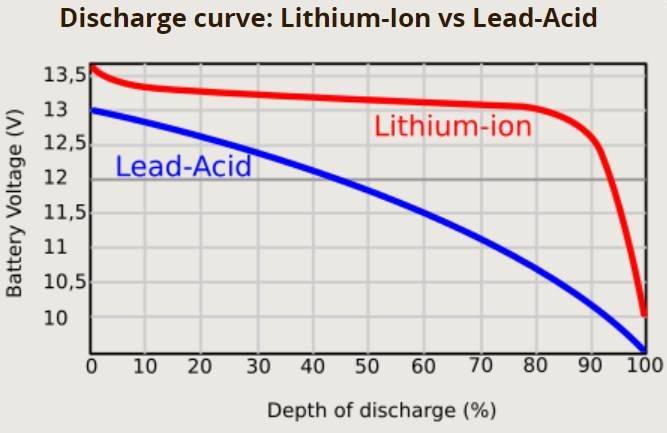Deep cycle lithium batteries are a type of rechargeable battery that are designed to provide a consistent and reliable source of power over an extended period of time. These batteries are often used in applications that require long-term power, such as in RVs, boats, solar energy systems, and off-grid power systems.
Table of Contents
ToggleWhat is a deep cycle lithium battery?
-
What is a Deep Cycle Lithium Battery? Deep cycle lithium batteries are designed to provide consistent and reliable power over long periods. Unlike starter batteries, they can discharge fully without damage and offer several advantages, including lightweight construction, high energy storage, and versatile operation in various conditions.
-
How Do Deep Cycle Lithium Batteries Work? Deep cycle lithium batteries create electricity through the flow of energy between a positively charged cathode and a negatively charged anode. Their unique chemical process enables them to discharge fully without damage, making them an ideal choice for applications that require sustained power over extended periods.
-
What is the Life of a Lithium Deep Cycle Battery? Lithium deep cycle batteries have a longer lifespan compared to lead-acid batteries, often lasting five to ten times as long. They can endure 3000-5000 cycles before reaching 80% of their original capacity. With slower degradation and consistent performance, lithium deep cycle batteries provide a reliable power solution for a decade or more.
How do deep cycle lithium batteries work?
Deep cycle lithium batteries work by combining deep cycle technology with lithium-ion technology. Deep cycle batteries are designed to provide consistent and reliable power over extended periods, while lithium-ion technology offers advantages such as higher energy density, longer cycle life, and faster recharge times. By combining these technologies, deep cycle lithium batteries provide ample energy to meet usage demands, last longer, and perform optimally in applications such as RVs, boats, and solar power systems. Discover the efficient and versatile power of deep cycle lithium batteries for your energy needs.
-
Deep Cycle Technology: Deep cycle batteries are designed to provide consistent and reliable power over extended periods. They are ideal for applications that require sustained power, such as RVs, boats, and solar power systems. Deep cycle batteries discharge slowly over time, ensuring a steady flow of energy without worrying about running out of power.
-
Lithium-Ion Technology: Lithium-ion technology offers several advantages for deep cycle batteries. It provides higher energy density, meaning more energy can be stored in a smaller space. Lithium-ion batteries also have a longer cycle life, allowing them to endure more charge and discharge cycles. Additionally, they offer faster recharge times, ensuring minimal downtime between uses.
-
Efficient and Versatile Power: By combining deep cycle technology with lithium-ion technology, deep cycle lithium batteries provide efficient and versatile power solutions. They can meet usage demands, last longer, and perform optimally in various applications such as RVs, boats, and solar power systems. Deep cycle lithium batteries offer reliable and cost-effective energy storage options for your specific power needs.

What is the life of a lithium deep cycle battery?
-
Lifespan of Lithium Deep Cycle Batteries: Lithium deep cycle batteries have a notably longer lifespan compared to traditional lead-acid batteries, often lasting up to 10 years or more. This extended lifespan translates to less frequent replacements, saving both time and money in the long run.
-
Factors Affecting Lifespan: Several factors can influence the lifespan of lithium deep cycle batteries. Temperature impact is significant, as extreme temperatures, whether hot or cold, can affect battery performance and longevity. The depth of discharge (DoD), indicating how much energy is drained before recharging, also plays a role in the battery’s lifespan. Proper charging practices, usage patterns, and quality considerations are essential for maximizing the battery’s longevity.
-
Maximizing Battery Lifespan: To prolong the life of your lithium deep cycle battery, proper care and maintenance are crucial. Charge the battery correctly, following manufacturer instructions and avoiding overcharging or undercharging. Maintain recommended temperature ranges during use and storage to prevent extreme heat or cold from affecting battery performance. Avoid full discharges and aim for partial discharges to enhance battery lifespan. Regularly monitor battery voltage to detect potential issues early. Use compatible equipment designed for lithium-ion batteries and follow proper storage practices.

Are lithium deep cycle batteries worth it?
-
Advantages of Lithium Deep Cycle Batteries: Lithium deep cycle batteries offer significant advantages over traditional lead-acid batteries. They have a longer lifespan, requiring fewer replacements and reducing long-term costs. These batteries are maintenance-free, saving time and effort. They charge faster, allowing you to spend more time enjoying your activities. Additionally, their lighter weight makes them ideal for applications where portability and weight limitations are crucial factors.
-
Considerations and Drawbacks: It’s important to consider the higher initial cost of lithium deep cycle batteries compared to lead-acid batteries. This upfront investment may require careful budgeting. Additionally, lithium deep cycle batteries require special charging equipment, which may involve additional expenses if not already available. It’s crucial to factor in these considerations when evaluating the overall cost and feasibility of lithium deep cycle batteries for your specific needs.
-
Long-Term Value and Performance: Despite the initial cost and equipment requirements, lithium deep cycle batteries offer long-term value and superior performance. Their extended lifespan, maintenance-free operation, faster charging times, and lighter weight make them a compelling choice for applications where reliability, efficiency, and sustainability are essential. By investing in lithium deep cycle batteries, you can enjoy reliable and efficient power storage for years to come.

What to look for when buying a lithium deep cycle battery?
-
Weight and Size: Look for a lithium deep cycle battery that is lightweight and compact, offering more flexibility for various applications. A lighter and smaller battery allows for easier installation and portability.
-
Charging Capabilities: Consider the charging speed of the battery. Lithium-ion batteries charge faster compared to other types, allowing for quicker recharge times. Look for a battery that can reach full capacity in one charging session.
-
Lifespan and Reliability: Prioritize a lithium deep cycle battery with a long lifespan and low maintenance requirements. Quality lithium-ion batteries can last up to 10 years or more, providing reliable and efficient power storage. Additionally, they don’t lose energy to self-discharge when in storage, making them a dependable choice.
What is the biggest problem with lithium batteries?
-
Battery Degradation: Over time, lithium batteries can experience degradation, leading to decreased capacity and performance. This occurs as the battery’s electrode structure is damaged due to the cycling of lithium-ion in and out of the electrodes. Proper care and maintenance can help mitigate this issue.
-
Battery Swelling: Battery swelling is a common problem with lithium batteries and can occur due to factors such as overcharging, using the wrong voltage, or manufacturing defects. It can result in cosmetic issues and potential safety hazards, requiring immediate attention and replacement.
-
Fire Hazards: While lithium batteries are generally safe, they can pose fire hazards under certain conditions. Thermal runaway or uncontrollable heating can cause lithium batteries to catch fire. Following proper charging practices and handling guidelines is essential to minimize the risk of fire.
-
Proper Battery Disposal: Disposing of lithium batteries properly is crucial to prevent environmental and safety risks. Improper disposal can lead to fire hazards and environmental pollution. It is recommended to bring unusable lithium batteries to designated waste collection and recycling facilities.



